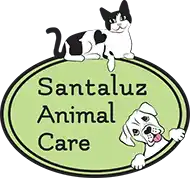September is Animal Pain Awareness Month. This is a very important topic, not only for those of us who work in the veterinary care industry, but also for anyone who has pets of their own. Our furry friends can’t tell us if something is wrong, so it’s up to us to watch for warning signs. These will vary a bit, depending on what the issue is, but there are some general ones to watch for. A Rancho Santa Fe, CA vet lists some of them below.
Limping
A severe limp is a big red flag, and is usually easy to spot. However, sometimes animals only limp for a moment. For instance, an arthritic dog may limp when he first gets up, but then start moving normally as his bones and muscles warm up.
Withdrawal
Some pets are naturally more outgoing than others are. Plus, cats sometimes like to nap in secluded spots. However, if your furry pal has taken to spending time alone, and doesn’t want to play or interact with you or other pets, there may be something wrong.
Difficulty Urinating/Defecation
This one should be treated as a medical emergency. If you notice your dog or cat having difficulty relieving themselves, contact your vet right away.
Behavioral Changes
Our furry buddies all have their own unique personalities, which is one of the many things we love about them. Keep an eye out for sudden changes in your pet’s demeanor or personality. For instance, a cuddly cat that suddenly hisses when touched may be hurting.
Wincing
Does your animal friend flinch when you pet them? Does Fido yelp when you touch his hips, or just seem very sensitive? This can also be a sign that something is going on.
Licking/Biting
Pets often lick or bite at sore spots. This is quite common in arthritic pets. Your canine buddy may lick or bite at his paws or the base of his tail.
Reduced Interest In Play
Dogs and cats are usually quite energetic and frisky. If your four-legged friend has suddenly lost interest in toys and/or playing, they could be in pain.
Unusual Vocalizations
Whining, whimpering, howling, and growling can also be signs of pain. Pay extra attention to any changes in your fuzzy pal’s usual vocalization patterns.
Are you in need of expert advice regarding your pet’s health or care? Don’t hesitate to contact us, your trusted veterinary specialist in Rancho Santa Fe, CA.






